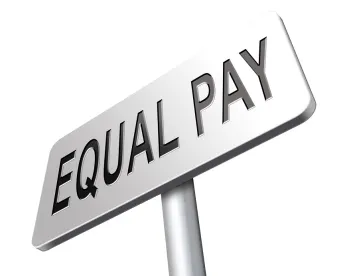On August 1, 2016, Massachusetts Governor Charles Barker signed the Act to Establish Pay Equity. The Act, which makes several important changes to Massachusetts wage laws, will go into effect on July 1, 2018.
The Massachusetts statute follows on the heels of similar legislation enacted in California, New York and other states to more stringently enforce gender equality in employee compensation. The Massachusetts law, however, has two unique components that make it distinct from other pay equity laws in the country. First, the law prohibits employers from asking prospective employees about their salary histories before making an offer of employment, unless the prospective employee “voluntarily” discloses the information. Second, where an employer engages in a good faith self-evaluation of its own pay practices, and can demonstrate that it has made reasonable progress toward eliminating gender-based compensation disparities, that employer can use the self-evaluation and reasonable progress as an affirmative defense in litigation if it is subject to suit within three years of completing the self-evaluation.
In summary, the Massachusetts law:
Prohibits employers from paying any employee less wages than an employee of the opposite gender for comparable work; provided, however, that variations in wages shall not be prohibited if based upon:
-
a seniority system;
-
a merit system;
-
a system which measures earnings by quantity or quality of production, sales, or revenue;
-
geographic locations;
-
education, training or experience reasonably related to the particular job; or
-
travel, if the travel is a regular and necessary condition of the particular job;
Prohibits employers from preventing prospective employees from inquiring about wages or salary information from the employer concerning the prospective position;
Prohibits employers from asking prospective employees or that prospective employee’s current or former employer about their wage or salary history before making an offer of employment;
Prohibits retaliation for acts taken by the employee under this law;
Extends the statute of limitations for suits to three years from the date of the violation; a violation of the statute occurs when a discriminatory compensation decision or practice is adopted, when an employee becomes subject to a discriminatory compensation decision or practice or when an employee is affected by application of a discriminatory compensation decision or practice, including each time wages are paid;
Permits an employee to file his or her claim directly in court, without any requirement to file with the Massachusetts Commission Against Discrimination;
Includes as damages for any employee who succeeds on his or her claim the unpaid wages, an equal amount of liquidated damages and reasonable attorneys’ fees and costs; and
Includes an affirmative defense for employers against equal pay claims if the employer has engaged within the previous three years a good faith self-evaluation of pay practices and can demonstrate that it has made “reasonable progress” toward eliminating compensation disparities on gender.
The statute defines “comparable work” to mean “work that is substantially similar in that it requires substantially similar skill, effort and responsibility and is performed under similar working conditions; provided, however, that a job title or job description alone shall not determine comparability.”
Though the law does not take effect until July 1, 2018, Massachusetts employers should start taking steps to comply with the law, including:
- Reviewing and amending their employment applications if they seek past wage or salary information;
- Training human resources employees when engaged in recruiting to not request past wage or salary information;
- Reviewing and amending any policies that prohibit employees from discussing their own wage or salary information; and
- Engaging in a good faith self-evaluation of compensation practices to eliminate compensation disparities, if any, based on gender.
Highlighting the nationwide movement toward pay equity, within days of the enactment of the Massachusetts law, New York City’s Public Advocate proposed legislation to the New York City Council that bars employers from inquiring about or obtaining information about a prospective employee’s wage or salary history. Based on this already-developing trend, we anticipate more jurisdictions will enact similar laws in the near future. Consequently, employers outside of Massachusetts would be well-advised to start taking steps in anticipation of such changes and to diligently assess wage or salary disparities in their workplaces.




 />i
/>i

